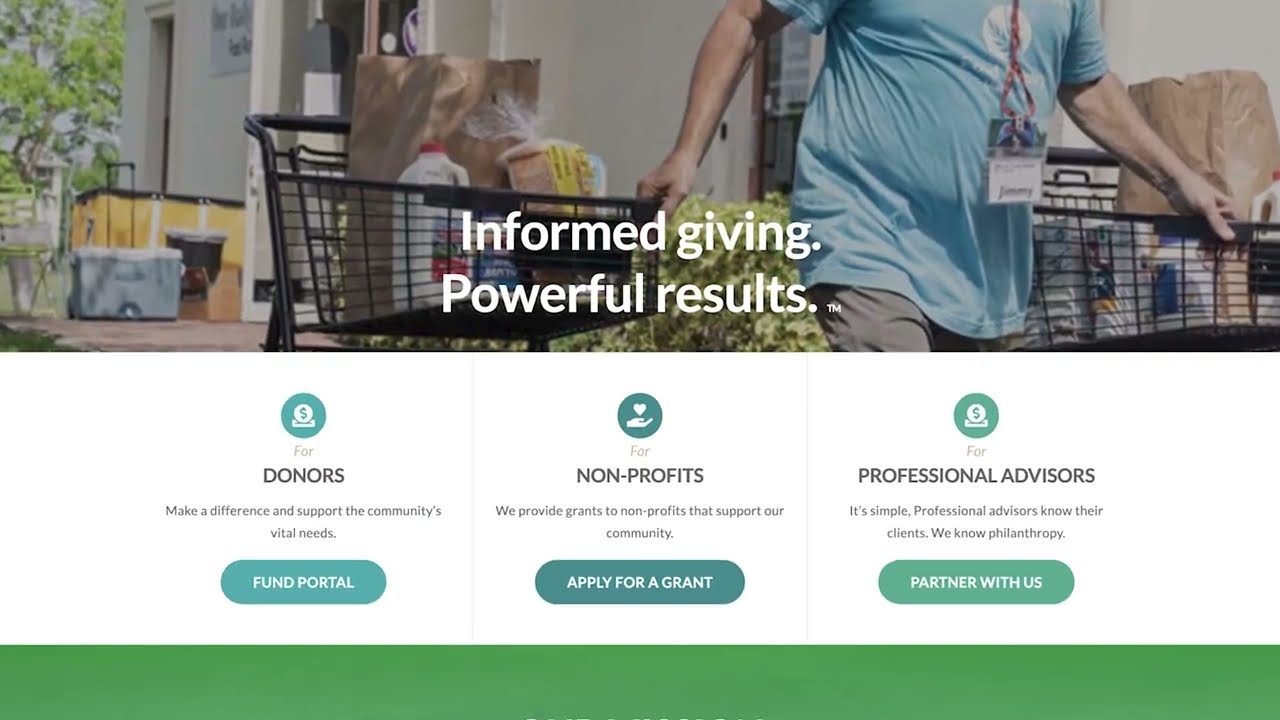Womens Preparedness
Collier County Emergency Preparedness – Volunteering

In the aftermath of #HurricaneIan, communities and neighbors are in need of help. Visit volunteerflorida.org for volunteer …
source
Womens Preparedness
Harnessing Sustainable Power: The Benefits of Renewable Energy for Homeowners

Harnessing Sustainable Power: The Benefits of Renewable Energy for Homeowners
Hello everyone! I’m Jade Tripp, and today I want to talk about a topic that’s not only crucial for our planet but also incredibly empowering for us as homeowners: renewable energy. As women who are increasingly taking charge of our homes, we have a unique opportunity to lead the way in sustainable living and self-reliance through renewable energy sources. Let’s explore the benefits and real-world applications of this empowering shift!
Understanding Renewable Energy
Renewable energy comes from natural sources that are constantly replenished, such as sunlight, wind, rain, tides, and geothermal heat. Unlike fossil fuels, which are finite and contribute to environmental degradation, renewable energy offers a sustainable alternative. When we harness these energy sources, we not only reduce our carbon footprint but also strengthen our energy independence.
The Big Benefits for Homeowners
-
Cost Savings Over Time
One of the most compelling reasons for homeowners to switch to renewable energy is the long-term cost savings. Yes, the initial investment can be daunting, but consider the impact of rising energy bills. According to the U.S. Department of Energy, solar energy can save homeowners between $10,000 to $30,000 over the lifespan of a solar panel system. Plus, states like California offer incentives such as rebates and tax credits that significantly lower upfront costs.
-
Increased Property Value
Homes equipped with renewable energy systems often have higher resale values. A study by the National Renewable Energy Laboratory found that homes with solar panels sold for an average of $15,000 more than those without. As buyers become more environmentally conscious, they actively seek homes with sustainable features. Imagine being that woman who not only invested in her home but also created value for her future.
-
Energy Independence and Security
By generating your own energy, you decrease your dependence on the grid. This is particularly important for us as women, who often find ourselves in caretaker roles. Having a self-sufficient energy source in the face of power outages or rising electricity prices offers peace of mind. For example, during Hurricane Sandy in 2012, many homeowners in New Jersey who had invested in solar energy or home generator systems were able to maintain power while their neighbors were left in the dark.
-
Environmental Impact
Embracing renewable energy significantly reduces your carbon footprint. The transition to solar, wind, or geothermal energy helps combat climate change and protect our planet for future generations. Jennifer, a mother of three from Oregon, shares how she installed solar panels on her home to create a sustainable living environment for her family. “I want my kids to grow up understanding the importance of taking care of our planet,” she says.
-
Community Involvement and Networking
Transitioning to renewable energy can open doors to involvement in local sustainability efforts. You can join local renewable energy cooperatives, attend workshops, and connect with like-minded women. Many communities have organizations focused on promoting renewable energy and encouraging residential investments.
Practical Steps to Get Started
-
Research Your Options
Start by evaluating available renewable energy sources in your area. Solar panels are the most common, but wind turbines, geothermal heating, and hydropower may also be options. Websites like the Solar Energy Industries Association (SEIA) provide exhaustive resources on the benefits and installations of solar energy. -
Assess Your Energy Needs
Take a moment to analyze your energy consumption. Tools like energy monitors can help you understand where you’re using the most energy and what changes you can make. -
Check Local Incentives
Look into local, state, or federal incentives for renewable energy. Many communities offer financial assistance or grants to residents who invest in sustainable technologies. -
Engage with Professionals
While DIY projects are empowering, consulting with professionals ensures that you make informed choices. Reach out to local renewable energy companies for consultations, and don’t hesitate to ask them questions related to installation, maintenance, and savings. - Educate and Inspire Others
Once you’ve made your own transition to renewable energy, share your experience with friends, family, and your community. Empowering other women to take similar steps can help build a supportive network focused on sustainability.
Conclusion
The transition to renewable energy is not just a practical choice; it’s an empowering lifestyle change that reflects our values as women. By adopting sustainable practices, we’re not only enhancing our homes but also becoming advocates for a better, more sustainable future. So let’s harness this sustainable power together and lead the way toward a brighter, greener tomorrow. Together, we can create a powerful ripple effect that not only protects our planet but also empowers our communities.
Let’s get started on this journey! 🌍✨
Womens Preparedness
Off grid hurricane preparedness. #hurricanemilton #datingtips #offgrid #shower #disastersurvival
Womens Preparedness
Survival Skills for Women: How to Prep for College Life

Survival Skills for Women: How to Prep for College Life
Hey there, future college students and young women stepping into this exciting new chapter of your lives! As you prepare to transition into college life, it’s essential to equip yourself not just academically, but also with the life skills that will help you thrive both on and off campus. Today, I want to focus on survival skills that every woman should consider—especially when it comes to personal safety, self-defense, and preparedness.
1. Understand Your Environment
Before you even step foot on campus, take some time to familiarize yourself with the area. Make note of the following:
-
Campus Resources: Identify the location of the campus police, health services, and counseling centers. Most universities offer security escorts at night—know how to access this service.
- Surrounding Areas: Research where the nearest grocery stores, pharmacies, and emergency services are located. Getting to know your environment can help you feel more secure.
Real Example: Emma’s Experience
When Emma moved to a large university in a bustling city, she spent a week before classes started familiarizing herself with the campus layout. She attended orientation activities focused on safety, chatted with resident advisors, and even walked the routes she’d take regularly. When school began, she felt confident navigating her new environment.
2. Personal Safety Strategies
Having a personal safety plan is crucial. Here are some strategies to consider:
-
Self-Defense Classes: Sign up for self-defense courses. Many campuses offer classes through student services or local martial arts studios. Techniques taught in these classes can empower you to act decisively in potentially dangerous situations.
- Buddy System: Always try to go out with a friend, especially at night. If you have to go somewhere alone, let someone know your whereabouts and your expected return time.
Real Example: Ava and the Buddy System
Ava learned the value of the buddy system when she almost got lost walking back to her dorm late one night. She was with her roommate, who helped her find her way. They realized that sticking together not only ensured safety but also made for fun nighttime walks.
3. Develop Situational Awareness
Being aware of your surroundings can significantly prevent dangerous situations. Here’s how to enhance this skill:
-
Limit Distractions: When walking around campus or waiting for public transportation, keep your phone away. Paying attention to your surroundings means noticing unusual behavior.
- Trust Your Gut: If something doesn’t feel right, trust that feeling. It’s better to be cautious and leave a situation than to ignore your instincts.
Real Example: Zoe’s Gut Feeling
Zoe was waiting for a bus when she noticed a man acting suspiciously near her. Though she didn’t want to seem paranoid, her gut told her something was off. She decided to walk to a nearby café instead, and later she learned there had been a minor incident reported at that bus stop. Trusting her instincts had kept her safe!
4. Emergency Preparedness
Preparation can make a huge difference in a crisis. Consider having a personal emergency kit that includes:
-
First Aid Supplies: Band-aids, antiseptic wipes, pain relievers, and any personal medications.
-
Emergency Contacts: Keep a list of important contact numbers (friends, family, campus services) in your wallet or bag.
- Self-Defense Tools: Pepper spray or a personal alarm can be useful as protective measures. Ensure you know how to use these items safely and legally.
Real Example: Mia’s Preparedness Plan
Mia created a small emergency kit that she keeps in her backpack. It includes her first aid supplies and a small flashlight for those late-night walks. One night, when her phone died on her way back to the dorm, she was grateful for the flashlight—she could light her way home without feeling vulnerable.
5. Building a Support Network
Connecting with fellow students and building a community is essential for your well-being. Here’s how to foster that network:
-
Join Clubs or Organizations: Getting involved in clubs can help you meet people who share your interests. This connectivity not only enriches your experience but also ensures you always have someone to turn to.
- Engage with Faculty and Advisors: Don’t hesitate to reach out to professors or student advisors. They can provide invaluable support in academics and life guidance.
Real Example: Sarah’s Club Experience
Sarah joined her campus’s women’s empowerment group. Not only did she make friends, but she also participated in workshops on self-defense and safety, allowing her to learn and grow in a supportive environment.
Transitioning to college life can be both thrilling and intimidating, but arming yourself with these essential survival skills can help ease your worries. Remember, you are not alone—you have a whole community of women who share your journey.
As you embark on this new adventure, lace up those hiking boots, pack that emergency kit, and get ready to take on college life with confidence. You’ve got this! Embrace the challenge, and remember that preparedness is empowerment. Here’s to a safe, successful, and fulfilling college experience!
-

 Womens Self Defense10 months ago
Womens Self Defense10 months agoNew Legislation Empowers Women to Defend Themselves
-

 Self Defense News1 year ago
Self Defense News1 year agoShe was convicted of killing her abusive boyfriend. Now a Maple Grove woman is home awaiting a new trial.
-

 Self Defense News1 year ago
Self Defense News1 year agoSelf-Defense for All: The new Gracie Jiu-Jitsu Pasadena is for everyone | Online Features
-

 Womens Self Defense1 year ago
Womens Self Defense1 year agoTop 5 Self-Defense Techniques Every Woman Should Know
-

 Womens Fitness1 year ago
Womens Fitness1 year agoXtreme Bodyweight HIIT (Lots of Jumping!) | Joanna Soh (Fio Series)
-

 Womens Self Defense6 months ago
Womens Self Defense6 months agoUnderstanding State-by-State Variation in Self Defense Laws
-

 Womens Preparedness1 year ago
Womens Preparedness1 year agoThe Importance of Self-Sufficiency Skills in Today’s World
-

 Womens Preparedness1 year ago
Womens Preparedness1 year ago10 essential skills for surviving in the great outdoors


